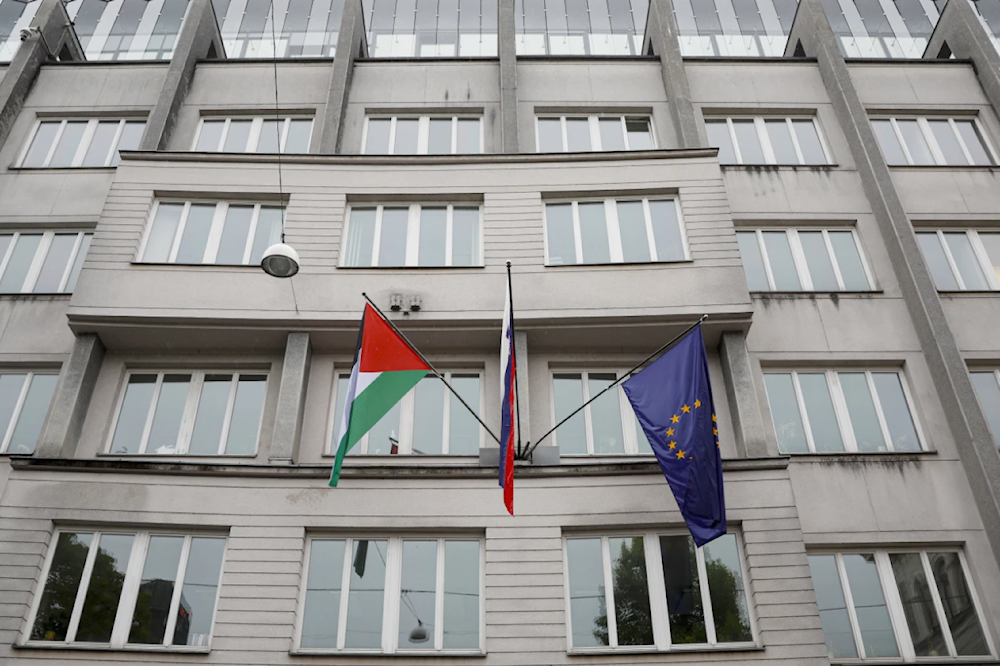Four European nations urge full UN membership for Palestine
Spain, Ireland, Slovenia, and Norway have called on the international community to accept the State of Palestine as a UN member.
-

A Palestinian flag flies next to a Slovenian and European Union flag at the government building in Ljubljana, Slovenia on May 30 ,2024. (AP)
In a joint statement, Spain, Ireland, Slovenia, and Norway have called on the international community to accept the State of Palestine as a full member of the United Nations, considering official recognition a fundamental step toward establishing a just and lasting peace in the region.
In their statement, the four countries affirmed that this position represents not only political support, but also a manifestation of their commitment to a two-state solution as well as international law and United Nations resolutions.
The four countries expressed concern over the deteriorating humanitarian situation in the Gaza Strip, calling for an end to the violence and a resumption of negotiations.
Spain, Ireland, and Norway have announced their official recognition of the State of Palestine, despite strong Israeli opposition, while France is mulling a similar step.
Although more than 140 countries recognize Palestine, full membership in the United Nations requires the approval of the Security Council, which may use its veto power.
EU reviews association agreement with 'Israel' over Gaza crisis
Tensions between "Israel" and the European Union have escalated following the European Commission’s decision to launch a formal review of the EU-"Israel" association agreement.
The move, triggered by mounting concern over the humanitarian catastrophe in Gaza, could lead to a partial suspension of cooperation with "Israel" in the coming weeks, a senior EU diplomat told Al-Monitor.
Seventeen of the EU’s 27 member states backed the Dutch proposal on May 20 to revisit the agreement. According to the diplomat, Vice President of the European Commission Kaja Kallas held repeated discussions with Israeli Foreign Minister Gideon Sa'ar, but no meaningful steps were taken by the Israeli government to ease conditions in Gaza, leaving EU officials with few alternatives.
Signed in 1995 and implemented in 2000, the agreement governs cooperation in trade, science, education, and culture. Article 2 obliges signatories to respect human rights, now the central legal basis for the review, given "Israel’s" restrictions on humanitarian aid to Gaza.
European diplomats indicate a swift timeline, with concrete actions expected to be discussed at the next EU foreign ministers’ meeting on June 23.

 2 Min Read
2 Min Read










